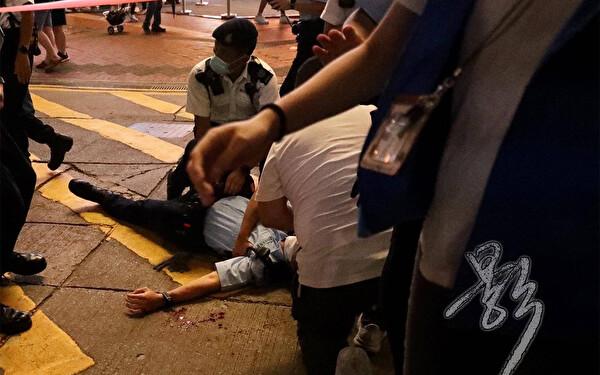The stabbing of a Hong Kong police officer on the night of July 1 could result in Hong Kong citizens having even more of their liberties restricted.
July 1 has been the date of the annual pro-democracy march in Hong Kong in recent years. But not this year. After the implementation of the National Security Law, there was no pro-democracy march. However, many citizens walked in the streets, wearing black, protesting in silence.





